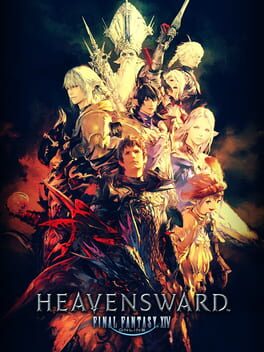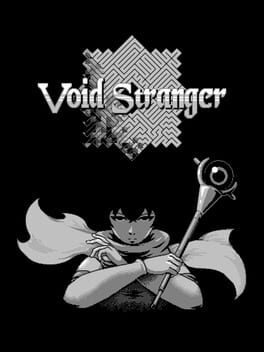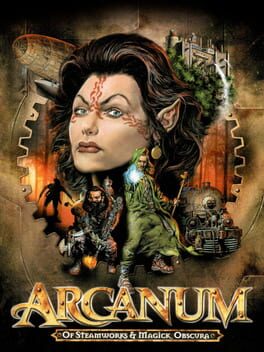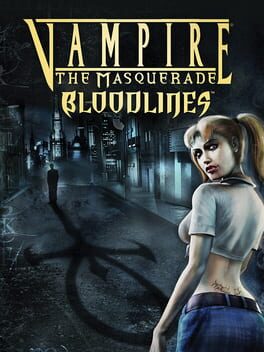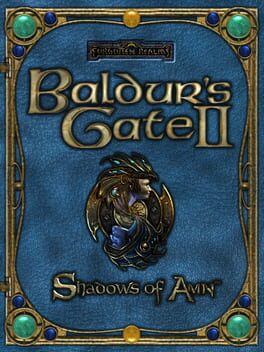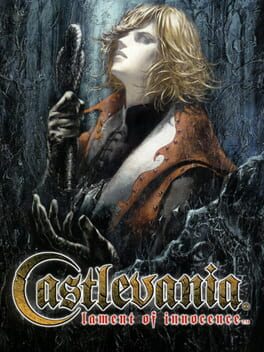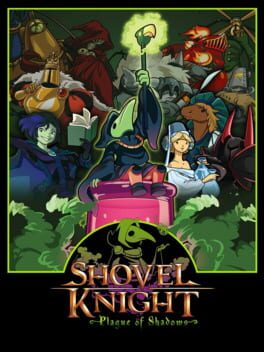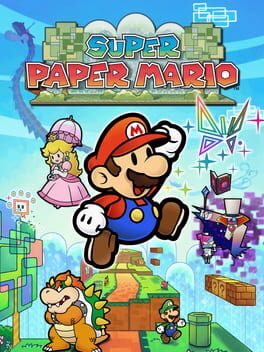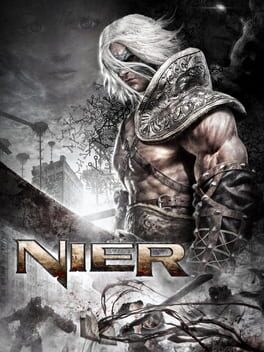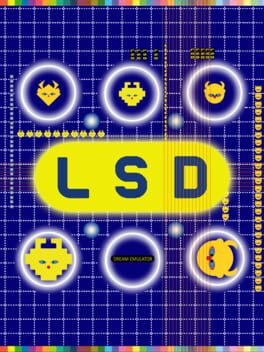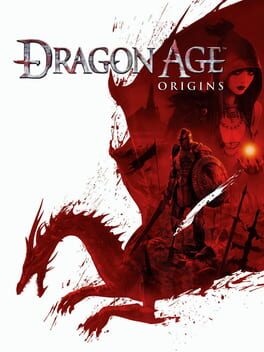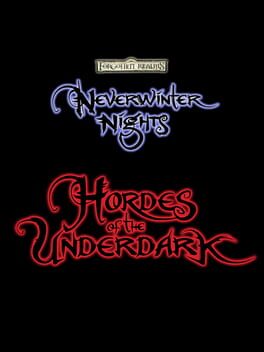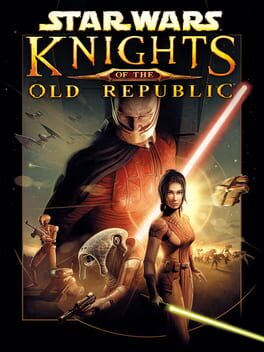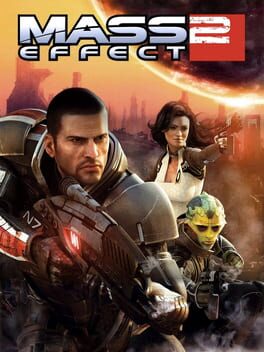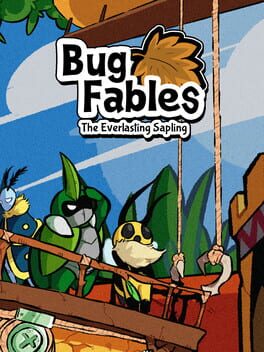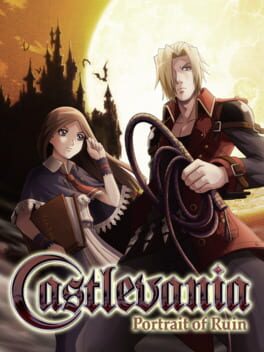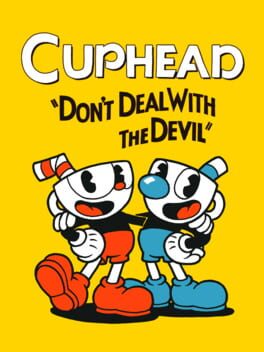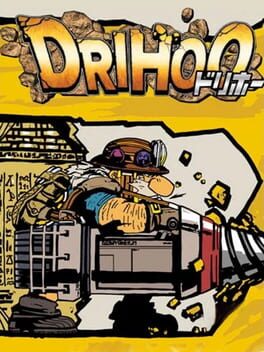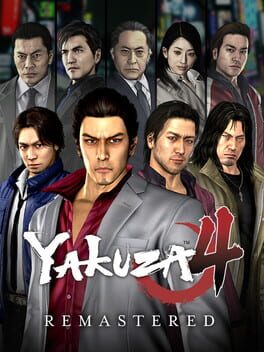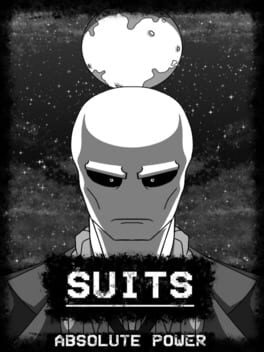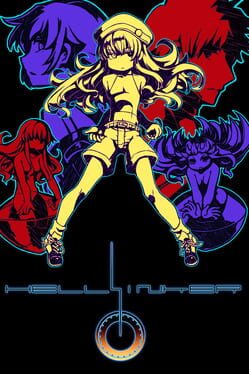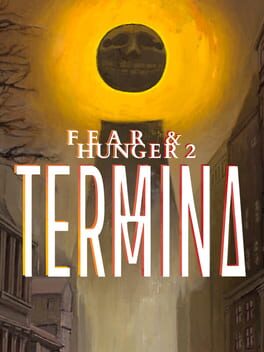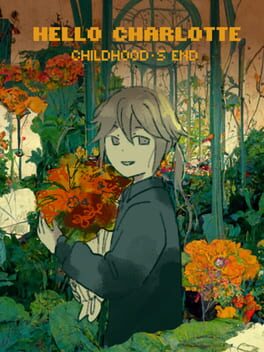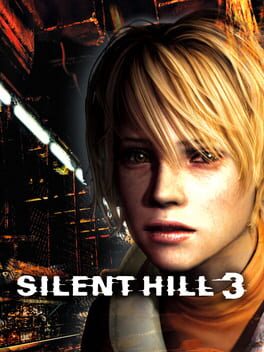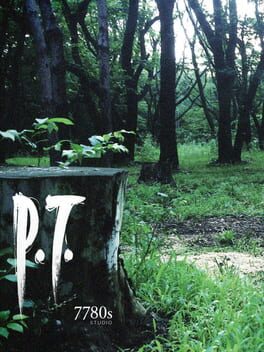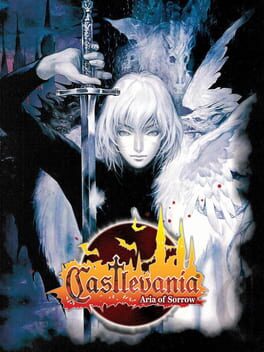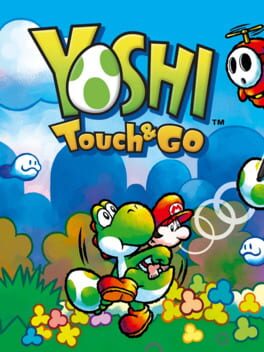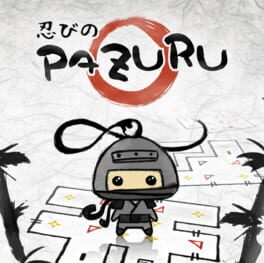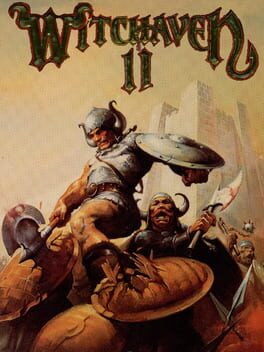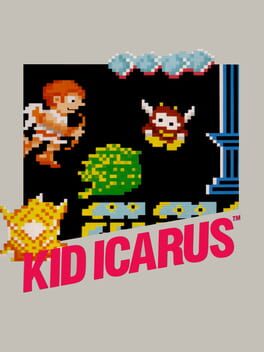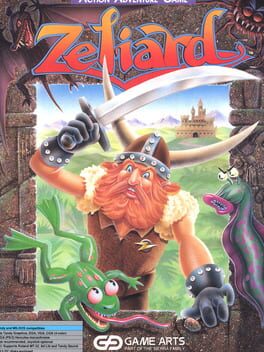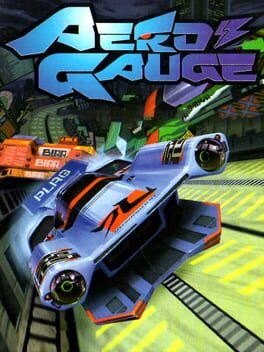1932 reviews liked by ListlessWitch
From Blaviken to Toussaint, I've followed The Witcher through all of his misadventures. These adventures have shaped Geralt over the course of seven books and three games, most of which are fantasy stories that I hold in the highest regard. The Witcher is one of the genre's crown jewels, in my opinion; its distinct brand of ethical dilemmas and its complex character writing drew me in as a teenager, and they continue to captivate my imagination and stir my soul to this day.
These adventures, however, cannot last forever; every story must end. The final expansion for The Witcher 3, Blood and Wine, aims to serve as an epilogue chapter in Geralt's story, and I must admit that it is one of the most fitting and satisfying ways this saga could conclude. Although the beautiful, lush mediaeval countryside and vineyards of Toussaint did not fully capture my heart on a second playthrough eight years later, I would be lying if I said I could think of a more fitting setting to end Geralt's adventure in. Toussaint is large—almost shockingly large for what should be the setting of an epilogue chapter, but I believe its size works well in its favour. When compared to the previous expansion, Hearts of Stone, I discovered something interesting. Hearts of Stone demonstrates an impressive degree of restraint in its approach to storytelling, while Blood and Wine takes a hard left turn by expanding the scope massively and letting the chains loose, reminiscent of The Wild Hunt's massively complex narrative. What sets Blood and Wine apart, however, is how it refines and enhances the expansive and nonlinear storytelling approach of The Wild Hunt, which results in what I feel to be a vastly more enjoyable and satisfying narrative experience.
CD Projekt Red handles everything here with the utmost care, and I can feel the love they put into Blood and Wine. It’s incredibly commendable how much respect they have for the source material and how dedicated they are to honouring The Witcher’s history in this expansion. I would be remiss not to praise this expansion for the immense love and care that went into it. Serving as an epilogue to a multi-year-long epic, Blood and Wine stands as one of the most impressive storytelling feats of the past decade. Everything here is almost perfect, and despite not fully capturing my heart in the way I had hoped it would, I’m still deeply satisfied and moved by Blood and Wine.
This is truly one of the greatest expansions of all time.
These adventures, however, cannot last forever; every story must end. The final expansion for The Witcher 3, Blood and Wine, aims to serve as an epilogue chapter in Geralt's story, and I must admit that it is one of the most fitting and satisfying ways this saga could conclude. Although the beautiful, lush mediaeval countryside and vineyards of Toussaint did not fully capture my heart on a second playthrough eight years later, I would be lying if I said I could think of a more fitting setting to end Geralt's adventure in. Toussaint is large—almost shockingly large for what should be the setting of an epilogue chapter, but I believe its size works well in its favour. When compared to the previous expansion, Hearts of Stone, I discovered something interesting. Hearts of Stone demonstrates an impressive degree of restraint in its approach to storytelling, while Blood and Wine takes a hard left turn by expanding the scope massively and letting the chains loose, reminiscent of The Wild Hunt's massively complex narrative. What sets Blood and Wine apart, however, is how it refines and enhances the expansive and nonlinear storytelling approach of The Wild Hunt, which results in what I feel to be a vastly more enjoyable and satisfying narrative experience.
CD Projekt Red handles everything here with the utmost care, and I can feel the love they put into Blood and Wine. It’s incredibly commendable how much respect they have for the source material and how dedicated they are to honouring The Witcher’s history in this expansion. I would be remiss not to praise this expansion for the immense love and care that went into it. Serving as an epilogue to a multi-year-long epic, Blood and Wine stands as one of the most impressive storytelling feats of the past decade. Everything here is almost perfect, and despite not fully capturing my heart in the way I had hoped it would, I’m still deeply satisfied and moved by Blood and Wine.
This is truly one of the greatest expansions of all time.
Xenogears
1998
Gave myself a day to kinda just sit with the whole experience of my first playthrough. Xenogears is one of those games that kinda just existed within the culture in a way where I always heard people vaguely gesture at its greatness, but never actually got any full details about what exactly made it so great. So for years and years and years and years and years I kinda just kept putting it off, playing many other games before and after it, hearing about its complexities but never really the details as of what those complexities were. Finally experiencing it for myself I completely get it.
An experience that is some parts Neon Genesis Evangelion, some parts Gundam some parts sci-fi novels and films, Xenogears wears all of its inspirations firmly on its sleeve and proudly bears it all as it goes into its own psychological, religious explorations of the self.
The ways in which it talks about running away from your problems rather than dealing with them and how that inevitably comes to bite you in the ass, there's a quite good example with the martial arts tournament you enter that genuinely surprised me when it happened.
The ways it delves into how trauma can inform and explain behaviors, can cause people to drift one way or another instead of facing the real problems within themselves, be lead to more and differing kinds of abuses, or completely shut themselves down due to their inability to truly cope with the things that've happened to them. But it also firmly discusses how important it is to continue to live, to continue to fight and go on despite the struggles we face in life, how we have to take responsibility for ourselves and the things we do despite our traumas, that again our traumas can be an explanation for behaviors and actions you may take, but at the end of the day you have to be responsible for your own actions.
There are a few characters I do wish were able to get more from the story (Rico, Maria, Chu Chu) and the very clear rushing of things does absolutely fuck with what was clearly supposed to be this ambitious and sprawling experience, though I will say in spite of the clear rush job that Disc 2 ends up as, I genuinely still quite loved the way they handle the presentation and style. Some of the quick cuts are really sharp and effective, I dig the kinda play stage type beat they do for some of the cutscenes they didn't have time to fully make enviornments for, I like the way they frame each part from differing characters POV's. There's a lot of cool things that make that second disc really interesting, kinda reflecting episodes 25 and 26 of NGE in ways.
It's such a strange feeling in ways cause like I kinda despised the gameplay at times (ground combat relies a bit too heavily on deathblows and grinding them out where-as I feel like the Gear combat is a bit better balanced in terms of building up to your deathblows and having to strategically manage your fuel levels in interesting ways). But even though I wasn't huge on the combat or some of the dungeon design (fuck Babel Tower) the whole thing just really came together for me. Everything it was doing was absolutely fuckin aces, it honestly reminded me of watching NGE for the first time as a teenager AS WELL AS watching both Shiki-Jitsu and Rebuild of Evangelion 3.0+1.0 with what exactly it was going for in its messaging and just how much it resonated with me. How much Fei's character arc resonated with me, how dense and packed of an experience it was overall.
I think I can safely say that I'm getting into the series cause I wanna see what else can come from anyone involved who was able to put this together.
An experience that is some parts Neon Genesis Evangelion, some parts Gundam some parts sci-fi novels and films, Xenogears wears all of its inspirations firmly on its sleeve and proudly bears it all as it goes into its own psychological, religious explorations of the self.
The ways in which it talks about running away from your problems rather than dealing with them and how that inevitably comes to bite you in the ass, there's a quite good example with the martial arts tournament you enter that genuinely surprised me when it happened.
The ways it delves into how trauma can inform and explain behaviors, can cause people to drift one way or another instead of facing the real problems within themselves, be lead to more and differing kinds of abuses, or completely shut themselves down due to their inability to truly cope with the things that've happened to them. But it also firmly discusses how important it is to continue to live, to continue to fight and go on despite the struggles we face in life, how we have to take responsibility for ourselves and the things we do despite our traumas, that again our traumas can be an explanation for behaviors and actions you may take, but at the end of the day you have to be responsible for your own actions.
There are a few characters I do wish were able to get more from the story (Rico, Maria, Chu Chu) and the very clear rushing of things does absolutely fuck with what was clearly supposed to be this ambitious and sprawling experience, though I will say in spite of the clear rush job that Disc 2 ends up as, I genuinely still quite loved the way they handle the presentation and style. Some of the quick cuts are really sharp and effective, I dig the kinda play stage type beat they do for some of the cutscenes they didn't have time to fully make enviornments for, I like the way they frame each part from differing characters POV's. There's a lot of cool things that make that second disc really interesting, kinda reflecting episodes 25 and 26 of NGE in ways.
It's such a strange feeling in ways cause like I kinda despised the gameplay at times (ground combat relies a bit too heavily on deathblows and grinding them out where-as I feel like the Gear combat is a bit better balanced in terms of building up to your deathblows and having to strategically manage your fuel levels in interesting ways). But even though I wasn't huge on the combat or some of the dungeon design (fuck Babel Tower) the whole thing just really came together for me. Everything it was doing was absolutely fuckin aces, it honestly reminded me of watching NGE for the first time as a teenager AS WELL AS watching both Shiki-Jitsu and Rebuild of Evangelion 3.0+1.0 with what exactly it was going for in its messaging and just how much it resonated with me. How much Fei's character arc resonated with me, how dense and packed of an experience it was overall.
I think I can safely say that I'm getting into the series cause I wanna see what else can come from anyone involved who was able to put this together.
been a yakuza fan since i was fifteen years old and holy fucking shit it still hits the same if not more. even with all the nostalgia and memories this could honestly be my favorite yakuza game ever and that's saying a lot
this game switches from "HOLY SHIT HOMELESS PEOPLE ARE SO COOL" into serious real yakuza shit into the most tragic and perfect writing ever all on a rotation RGG STUDIOS HOW DO YOU MAKE IT LOOK SO EASYYYY NO ONE DOES IT LIKE YOU
i am on board with EVERYTHING that changed. party and turn based system ? peak and easily better than all the combat systems of its predecessors. the way they turned this into turn based was so fucking genius and way more fun
one of my all time favorite series delivers again i'm so fucking happy i decided to circle around and continue the series 6 years after catching up
in just one game and the start of the "second arc" it shoots up to atleast top2 rgg games THANK YOU RGG
not gonna waste much time im jumping immediately on judgement and lost judgement so i can continue this series
this game switches from "HOLY SHIT HOMELESS PEOPLE ARE SO COOL" into serious real yakuza shit into the most tragic and perfect writing ever all on a rotation RGG STUDIOS HOW DO YOU MAKE IT LOOK SO EASYYYY NO ONE DOES IT LIKE YOU
i am on board with EVERYTHING that changed. party and turn based system ? peak and easily better than all the combat systems of its predecessors. the way they turned this into turn based was so fucking genius and way more fun
one of my all time favorite series delivers again i'm so fucking happy i decided to circle around and continue the series 6 years after catching up
in just one game and the start of the "second arc" it shoots up to atleast top2 rgg games THANK YOU RGG
not gonna waste much time im jumping immediately on judgement and lost judgement so i can continue this series
Having replayed this again after just finishing a replay of DKC2, I can't see what this game did to gain so many detractors when it plays just fine in the same formula, it's certainly easier than the previous two but I only find the second game all that challenging anyway. I suppose the shift in protagonists and setting upset people back then as well as its status as a late SNES game when the N64 was out in most major markets, except the one the game was made in because fuck Europe lolololol, but that's all pretty silly reasons to feel lukewarm about it in my view.
I think if people go into this one with different expectations about what you're in for, an easier more collection heavy and lightly puzzle-focused affair, you'll have a decent time with it. If you're after the highs of DKC2 with all of its bombast and higher speed platforming, you'll be disappointed as this game is more low-key and laidback, it's well exemplified by how much easier it is to 100% as I was able to find almost every bonus barrel and get every DK coin on my first go with only two exceptions, whereas DKC2 can put them in some extremely cryptic locations and some which are almost necessary to use a guide for a first time as they require going through unmarked invisible walls, DKC3 has nothing on that level and I find the experience of going for 100% a lot less annoying as a result.
Overall, whilst I wouldn't say it's better than DKC2 or the first, it's still a good platformer and not deserving of the hate it gets from some quarters, this isn't a bad game by any means and if you go in with an open mind I believe you'll enjoy it.
I think if people go into this one with different expectations about what you're in for, an easier more collection heavy and lightly puzzle-focused affair, you'll have a decent time with it. If you're after the highs of DKC2 with all of its bombast and higher speed platforming, you'll be disappointed as this game is more low-key and laidback, it's well exemplified by how much easier it is to 100% as I was able to find almost every bonus barrel and get every DK coin on my first go with only two exceptions, whereas DKC2 can put them in some extremely cryptic locations and some which are almost necessary to use a guide for a first time as they require going through unmarked invisible walls, DKC3 has nothing on that level and I find the experience of going for 100% a lot less annoying as a result.
Overall, whilst I wouldn't say it's better than DKC2 or the first, it's still a good platformer and not deserving of the hate it gets from some quarters, this isn't a bad game by any means and if you go in with an open mind I believe you'll enjoy it.
Void Stranger
2023
“For these defects, and for no other evil, we are now lost and punished just with this: We have no hope and yet we live in longing”
Devotion is an incredibly potent motivator. Our capacity to love something or someone to such an extent that we can pledge every facet of our being to their cause is both a wonderful, yet tragic curse. This infatuation we have can allow us to endure even the circles of hell itself, but in turn it makes us blind. We forgo all else around in the pursuit of perpetuating the eternal memory of our devotee.
Void Stranger is a hard game to discuss for several reasons. The most pressing of which is that you simply are not allowed to speak of it in any meaningful capacity lest you give its game away to the uninitiated. So sacred are its labyrinthian secrets revered by those privy that they are selfishly hoarded, and only dispensed piecemeal to the desperate to prevent them from succumbing entirely to the void. It should be self-evident from this alone that there is much value to be had from this game through self-discovery. That to discuss the contents within its locker is tantamount to sin.
Yet to not talk about it defeats its message! Did others not play the same game as I? Did they not learn of the ultimate tragedy that ensues when keeping something so tight to one’s chest? To keep silent of our experiences is to allow them to die with us! These bearings are to be exposed. These walls we build around ourselves must crumble away so that who we are may be shared.
This review is a compromise of these two thoughts and split accordingly into two parts. The first, in which you are reading, to serve as mere bait to entice the curious and hungry into a deadly snare. A brief synopsis of memory deliberately obfuscated to reveal limited truth and provide some initial guidance. A second intended to be read for those whom have completed a ‘successful’ dive into the void, in which I will elaborate upon the true nature of the abyss. Such tiered structure of revelation is at the very core of this story that I would seek to have you to play.
Void Stranger presents itself as a classical story about how one’s devotion can surpass all. Lady Gray is the embodiment of traditionally noble ideals. Conviction and duty are paramount to her. She honours that which she loves by seeking to exist as an extension of their will. There is no burden too great that she is unwilling or seemingly unable to bear. This to her is the nature of love itself, the meaning she has ascribed to it. She expresses love through her devotion.
And yet this labyrinth she is made to endure is ultimately one of judgment. A condemnation of those who wander its ever-twisting halls. These puzzles that you initially meet with earnest resolve, they will slowly wear you ragged. They will wear away at your soul. They will surely consume you. You will soon come to an understanding that playing this much Sokoban truly is hell! The question becomes what do you do afterwards when your resolve falters?
There are a few options available to you when this occurs. Not all are obvious. ALL of them are valid ways to progress. The one and only meaningful purpose of this initial review is to provide this assurance. That each of these paths will ultimately, albeit differently, lead to payoff.
The most intuitive of course being to press onwards undeterred. Conviction, duty, devotion, so neatly align with that of a quality that games as a medium tend to cultivate within its players. Determination. With simply enough perseverance you will succeed. And although I offer alternatives do not let this dissuade you from this road. It is the intended path to follow, and you will be uniquely rewarded should you tread it.
Perhaps though you will try again. Repeat the game fresh from the start. Carrying over only a more experienced perspective. A less naïve and more discerning approach. There are secrets to these halls after all, that which you may have noticed but were too late to act upon in retrospect.
Or perhaps you will simply give up. Move on and play something else. This too is a valid conclusion to the journey. There is no shame in doing so. So many others have fallen to these halls after all and so too will all in time. To perpetuate memory eternal is foolish. Let it fade.
However most controversially I offer a final recourse that some would consider taboo. Cheat. Cheat a little. Cheat a lot even. Cheat as much as you think you have been cheated by. Look at floor puzzle guides. Ask for advice or hints from others whom have undertaken this journey. I will not pretend that the other roads are not more ideal. But you have nothing to prove. It is not your devotion that is being tested after all.
Ultimately Void Stranger is a game that seeks to hurt you. It hurt me and it is this grievance that I wish to share. And at the end of the void, if you have not lost yourself, you will discover the folly that is devotion. Can you remember why you are here?
(I recommend this game first and foremost to those who wish to see videogames elevated as a form of literary art. After playing this it has shown my faith in the medium in being able to convey unique and profound experiences to not be misplaced. However, that is not without caveats. This is a long and grueling journey with an initially uncertain payoff. It demands a lot of time from you. Some knowledge is gatekeeped until you have endured a requisite amount of suffering. This however is a part of the ‘art’. It is absolutely my favourite game I have played in quite some while. Sokoban fans may even find they might enjoy this too!)
“I wonder... Maybe we're simply too late. All light that reaches us is just a faded memory. If we wish to escape their fate... We must shine even brighter. Our light must become endless.”
Part 2 is here (Full of spoilers): https://www.backloggd.com/u/GingerV/review/1566841/
Devotion is an incredibly potent motivator. Our capacity to love something or someone to such an extent that we can pledge every facet of our being to their cause is both a wonderful, yet tragic curse. This infatuation we have can allow us to endure even the circles of hell itself, but in turn it makes us blind. We forgo all else around in the pursuit of perpetuating the eternal memory of our devotee.
Void Stranger is a hard game to discuss for several reasons. The most pressing of which is that you simply are not allowed to speak of it in any meaningful capacity lest you give its game away to the uninitiated. So sacred are its labyrinthian secrets revered by those privy that they are selfishly hoarded, and only dispensed piecemeal to the desperate to prevent them from succumbing entirely to the void. It should be self-evident from this alone that there is much value to be had from this game through self-discovery. That to discuss the contents within its locker is tantamount to sin.
Yet to not talk about it defeats its message! Did others not play the same game as I? Did they not learn of the ultimate tragedy that ensues when keeping something so tight to one’s chest? To keep silent of our experiences is to allow them to die with us! These bearings are to be exposed. These walls we build around ourselves must crumble away so that who we are may be shared.
This review is a compromise of these two thoughts and split accordingly into two parts. The first, in which you are reading, to serve as mere bait to entice the curious and hungry into a deadly snare. A brief synopsis of memory deliberately obfuscated to reveal limited truth and provide some initial guidance. A second intended to be read for those whom have completed a ‘successful’ dive into the void, in which I will elaborate upon the true nature of the abyss. Such tiered structure of revelation is at the very core of this story that I would seek to have you to play.
Void Stranger presents itself as a classical story about how one’s devotion can surpass all. Lady Gray is the embodiment of traditionally noble ideals. Conviction and duty are paramount to her. She honours that which she loves by seeking to exist as an extension of their will. There is no burden too great that she is unwilling or seemingly unable to bear. This to her is the nature of love itself, the meaning she has ascribed to it. She expresses love through her devotion.
And yet this labyrinth she is made to endure is ultimately one of judgment. A condemnation of those who wander its ever-twisting halls. These puzzles that you initially meet with earnest resolve, they will slowly wear you ragged. They will wear away at your soul. They will surely consume you. You will soon come to an understanding that playing this much Sokoban truly is hell! The question becomes what do you do afterwards when your resolve falters?
There are a few options available to you when this occurs. Not all are obvious. ALL of them are valid ways to progress. The one and only meaningful purpose of this initial review is to provide this assurance. That each of these paths will ultimately, albeit differently, lead to payoff.
The most intuitive of course being to press onwards undeterred. Conviction, duty, devotion, so neatly align with that of a quality that games as a medium tend to cultivate within its players. Determination. With simply enough perseverance you will succeed. And although I offer alternatives do not let this dissuade you from this road. It is the intended path to follow, and you will be uniquely rewarded should you tread it.
Perhaps though you will try again. Repeat the game fresh from the start. Carrying over only a more experienced perspective. A less naïve and more discerning approach. There are secrets to these halls after all, that which you may have noticed but were too late to act upon in retrospect.
Or perhaps you will simply give up. Move on and play something else. This too is a valid conclusion to the journey. There is no shame in doing so. So many others have fallen to these halls after all and so too will all in time. To perpetuate memory eternal is foolish. Let it fade.
However most controversially I offer a final recourse that some would consider taboo. Cheat. Cheat a little. Cheat a lot even. Cheat as much as you think you have been cheated by. Look at floor puzzle guides. Ask for advice or hints from others whom have undertaken this journey. I will not pretend that the other roads are not more ideal. But you have nothing to prove. It is not your devotion that is being tested after all.
Ultimately Void Stranger is a game that seeks to hurt you. It hurt me and it is this grievance that I wish to share. And at the end of the void, if you have not lost yourself, you will discover the folly that is devotion. Can you remember why you are here?
(I recommend this game first and foremost to those who wish to see videogames elevated as a form of literary art. After playing this it has shown my faith in the medium in being able to convey unique and profound experiences to not be misplaced. However, that is not without caveats. This is a long and grueling journey with an initially uncertain payoff. It demands a lot of time from you. Some knowledge is gatekeeped until you have endured a requisite amount of suffering. This however is a part of the ‘art’. It is absolutely my favourite game I have played in quite some while. Sokoban fans may even find they might enjoy this too!)
“I wonder... Maybe we're simply too late. All light that reaches us is just a faded memory. If we wish to escape their fate... We must shine even brighter. Our light must become endless.”
Part 2 is here (Full of spoilers): https://www.backloggd.com/u/GingerV/review/1566841/
Void Stranger
2023
This review contains spoilers
“Become endless? To hell with all of that! I'm happy because we're together, right here and now. Even when the last star burns out... This memory will surely remain. Because I love you.”
I am assuming that if you have decided to click on that ‘I’m ready’ button you have learnt of the curious decision made within the heart of the void. If you have not, I will not begrudge you of your agency if you decide to read on further. I myself cheated this game out of its many secrets similarly to this, yet by the time I did so, it was because I was fully enamoured with it. So, I give this final opportunity to turn back should you seek to form your own infatuation with this experience before I corrupt any preconception you have with that of my bias.
As you are left perhaps still reeling at the decision made by Lady Gray, you reload the game and are given a brief reprieve to absorb what exactly has just transpired before you are thrown back once more into the void. That initial premise of Void Stranger you just endured in that first playthrough, encapsulating those classical story archetypes, was merely there to serve as pretext. A formative basis in which to be iterated upon in a never-ending pursuit of recontextualization and retrospection. The first layer of many in which you engage and form an understanding with a literature’s thoughts and ideas. Conventionally most stories will end here leaving the reader on their own to pursue any further depths, Void Stranger however does the work for you in reframing itself. Narratively bringing itself forward an age, the world setting shifting to cement this change. Becoming modern, a more contemporary piece, self-critical and questioning. The game’s story structure has evolved paralleling that of how story frameworks have over time. You slowly discover that Void Stranger is about the ever-evolving nature of literature itself.
But no that is not the immediate concern is it, this realisation happens later when the dust is settled and the immediate fire is put out. The most pressing thought that dwells in one’s mind for the second playthrough is less abstract. This thought as you are given control over a new character, this stranger that Gray chose over the very charge in which she braved hell itself for, forms a simple question. Why? Why did she make that choice?
And here lies the focal point of this game. Void Stranger is ultimately not a drama nor a romance but that of a tragedy. It is about the insurmountable power of love yes, but more so about one of its perpetually recurring adversities. More specifically that of the irreconcilable differences between the understanding of love of a parent with that of their child. How these different interpretations of love between them are not reciprocated because they each are conceived from that which is fundamentally opposed.
Gray embodies limitless love for one person, but that devotion was never towards her daughters. Instead, Gray’s love and devotion is ethereal, directed towards the voided, to that of a deceased queen upon whom their lineage derives. In lieu of a living being of flesh in which to dedicate her love, there is only simple memory. If memory is all that remains then so be it, Gray will see to it that it persists eternally. A light that she must see become endless.
Parents do not love their children for who they are. How can they? Initially there is nothing in which to form such a connection. These fragile zygotes that only eventually grow into personhood have yet to form a self. They are naught more than a growing mass of flesh. To sincerely love a child before they can grow and realise themselves is impossible. Instead, a parent loves that which they can project onto, a perceived potential. A belief in the idea of what the child will eventually become. For Gray that belief is in that endless light. That these children, and their children, and their children will live ever eternal. Proxies for the endlessly recurring memory that she is devoted to. This is a sincere expression of love. The tragic rationale on how she made that choice in the void.
A child’s love in turn starts as something much cleaner but unfortunately no less delusional. It, at least, is founded upon something tangible, the corporeal and living caretaker in front of them. This person who seemingly loves them unconditionally. As the child grows and attains self-actualization, this formative perception of love is sought to be reciprocated. Lillie (and the Lily whom was lost to the void) loves Gray wholeheartedly. And in turn seek to express this love by embodying to become just like them, to honour them by living as their reflection. Eventually however, it is come to be understood that the unconditional basis that formed such a love is not real.
And yet it does not matter at all! Love is belief in as much as it is devotion. Lillie embodies a sincere unconditional love for her mother Gray naïve it may be. This love however is not what Gray sought. She cannot accept Lillie to live for her sake over that of her muse. To do so would extinguish her memory, her eternal light, to kill what little remains. And so Gray does not, and cannot, reciprocate this love coming from this reflection herself. And so she rejects it.
There is no recourse. The memory is still doomed to fade. Devotion without purpose is foolishness. As Gray too becomes only memory what then becomes of Lillie? This being whose self was conceived from the basis of these two irreconcilable and unreciprocated beliefs in love? The dawning realization that Lillie could never become someone Gray could see as worthy to love. That perhaps she only exists as a wrong choice, that it should have been her left behind in the void. What answer exists there for her should she return? For one devoid of devotion? I will not deny you from forming your answer by presenting my own.
Void Stranger does not end here. As far as I am aware Void Stranger does not end. It seeks to encapsulate something grander than a story. The journey of life itself in all its infinite recursion. It repeats that trick mentioned earlier once more. Bringing the story forward another age, recontextualizing itself. The nature of story itself now coming under scrutiny. The enigmatic purpose of demons and of void to be elaborated upon and revealed. A work as a living being in which we breathe life into. Now becoming post-modern.
But I am not capable nor willing to elaborate any further. Satisfied as I am to leave it here. The adventure of life goes on, with and without me.
“I don’t know what this feeling is, but… I was searching for it for a long time. Now that I’ve found it… I realize that it doesn’t belong to me.”
I am assuming that if you have decided to click on that ‘I’m ready’ button you have learnt of the curious decision made within the heart of the void. If you have not, I will not begrudge you of your agency if you decide to read on further. I myself cheated this game out of its many secrets similarly to this, yet by the time I did so, it was because I was fully enamoured with it. So, I give this final opportunity to turn back should you seek to form your own infatuation with this experience before I corrupt any preconception you have with that of my bias.
As you are left perhaps still reeling at the decision made by Lady Gray, you reload the game and are given a brief reprieve to absorb what exactly has just transpired before you are thrown back once more into the void. That initial premise of Void Stranger you just endured in that first playthrough, encapsulating those classical story archetypes, was merely there to serve as pretext. A formative basis in which to be iterated upon in a never-ending pursuit of recontextualization and retrospection. The first layer of many in which you engage and form an understanding with a literature’s thoughts and ideas. Conventionally most stories will end here leaving the reader on their own to pursue any further depths, Void Stranger however does the work for you in reframing itself. Narratively bringing itself forward an age, the world setting shifting to cement this change. Becoming modern, a more contemporary piece, self-critical and questioning. The game’s story structure has evolved paralleling that of how story frameworks have over time. You slowly discover that Void Stranger is about the ever-evolving nature of literature itself.
But no that is not the immediate concern is it, this realisation happens later when the dust is settled and the immediate fire is put out. The most pressing thought that dwells in one’s mind for the second playthrough is less abstract. This thought as you are given control over a new character, this stranger that Gray chose over the very charge in which she braved hell itself for, forms a simple question. Why? Why did she make that choice?
And here lies the focal point of this game. Void Stranger is ultimately not a drama nor a romance but that of a tragedy. It is about the insurmountable power of love yes, but more so about one of its perpetually recurring adversities. More specifically that of the irreconcilable differences between the understanding of love of a parent with that of their child. How these different interpretations of love between them are not reciprocated because they each are conceived from that which is fundamentally opposed.
Gray embodies limitless love for one person, but that devotion was never towards her daughters. Instead, Gray’s love and devotion is ethereal, directed towards the voided, to that of a deceased queen upon whom their lineage derives. In lieu of a living being of flesh in which to dedicate her love, there is only simple memory. If memory is all that remains then so be it, Gray will see to it that it persists eternally. A light that she must see become endless.
Parents do not love their children for who they are. How can they? Initially there is nothing in which to form such a connection. These fragile zygotes that only eventually grow into personhood have yet to form a self. They are naught more than a growing mass of flesh. To sincerely love a child before they can grow and realise themselves is impossible. Instead, a parent loves that which they can project onto, a perceived potential. A belief in the idea of what the child will eventually become. For Gray that belief is in that endless light. That these children, and their children, and their children will live ever eternal. Proxies for the endlessly recurring memory that she is devoted to. This is a sincere expression of love. The tragic rationale on how she made that choice in the void.
A child’s love in turn starts as something much cleaner but unfortunately no less delusional. It, at least, is founded upon something tangible, the corporeal and living caretaker in front of them. This person who seemingly loves them unconditionally. As the child grows and attains self-actualization, this formative perception of love is sought to be reciprocated. Lillie (and the Lily whom was lost to the void) loves Gray wholeheartedly. And in turn seek to express this love by embodying to become just like them, to honour them by living as their reflection. Eventually however, it is come to be understood that the unconditional basis that formed such a love is not real.
And yet it does not matter at all! Love is belief in as much as it is devotion. Lillie embodies a sincere unconditional love for her mother Gray naïve it may be. This love however is not what Gray sought. She cannot accept Lillie to live for her sake over that of her muse. To do so would extinguish her memory, her eternal light, to kill what little remains. And so Gray does not, and cannot, reciprocate this love coming from this reflection herself. And so she rejects it.
There is no recourse. The memory is still doomed to fade. Devotion without purpose is foolishness. As Gray too becomes only memory what then becomes of Lillie? This being whose self was conceived from the basis of these two irreconcilable and unreciprocated beliefs in love? The dawning realization that Lillie could never become someone Gray could see as worthy to love. That perhaps she only exists as a wrong choice, that it should have been her left behind in the void. What answer exists there for her should she return? For one devoid of devotion? I will not deny you from forming your answer by presenting my own.
Void Stranger does not end here. As far as I am aware Void Stranger does not end. It seeks to encapsulate something grander than a story. The journey of life itself in all its infinite recursion. It repeats that trick mentioned earlier once more. Bringing the story forward another age, recontextualizing itself. The nature of story itself now coming under scrutiny. The enigmatic purpose of demons and of void to be elaborated upon and revealed. A work as a living being in which we breathe life into. Now becoming post-modern.
But I am not capable nor willing to elaborate any further. Satisfied as I am to leave it here. The adventure of life goes on, with and without me.
“I don’t know what this feeling is, but… I was searching for it for a long time. Now that I’ve found it… I realize that it doesn’t belong to me.”
Streets of Kamurocho
2020
Free stuff is cool, I think we can all agree on that. And when said free stuff comes from a large studio like the Jack Bros metroidvania and this, that's also cool. It shows that in the nighmarish world that is AAA game development, there are some people who care about the games themselves. Maybe this whole thing was made by Satoshi from accounting when he was bored. In that case, we love you Satoshi from accounting.
It's basically just a streets of rage level changed to have Yakuza characters. That's it, you can finish it in under ten minutes. You can do it as Kiryu, Majima, and then Ichiban if you beat it as one of the other two. They all play the same only Kiryu has red effects and Majima has purple ones, which is probably my biggest issue. I know SoR games have multiple playable characters with different styles, so having three guys that all fight the same felt weird. Just Kiryu would be fine, but this felt like a tease. Only thing that changes is the background music, which is pretty good 16-bit remixes of the battle themes from the characters respective games, which was cool.
So if you like Yakuza and have 15 minutes you don't know what to do with, give this game a shot. It's discontinued, but pretty easy to get running on Steam (I'd link it but maybe Backloggd would think I'm running a scam or something)
It's basically just a streets of rage level changed to have Yakuza characters. That's it, you can finish it in under ten minutes. You can do it as Kiryu, Majima, and then Ichiban if you beat it as one of the other two. They all play the same only Kiryu has red effects and Majima has purple ones, which is probably my biggest issue. I know SoR games have multiple playable characters with different styles, so having three guys that all fight the same felt weird. Just Kiryu would be fine, but this felt like a tease. Only thing that changes is the background music, which is pretty good 16-bit remixes of the battle themes from the characters respective games, which was cool.
So if you like Yakuza and have 15 minutes you don't know what to do with, give this game a shot. It's discontinued, but pretty easy to get running on Steam (I'd link it but maybe Backloggd would think I'm running a scam or something)
136 lists liked by ListlessWitch
by CorpsSansOrganes |
17 Games
by CorpsSansOrganes |
75 Games
by Archagent |
10 Games
by Raivin |
14 Games
by Bells |
50 Games
by canti |
16 Games
by CorpsSansOrganes |
43 Games
by CorpsSansOrganes |
11 Games
by moschidae |
6 Games
by Archagent |
18 Games
